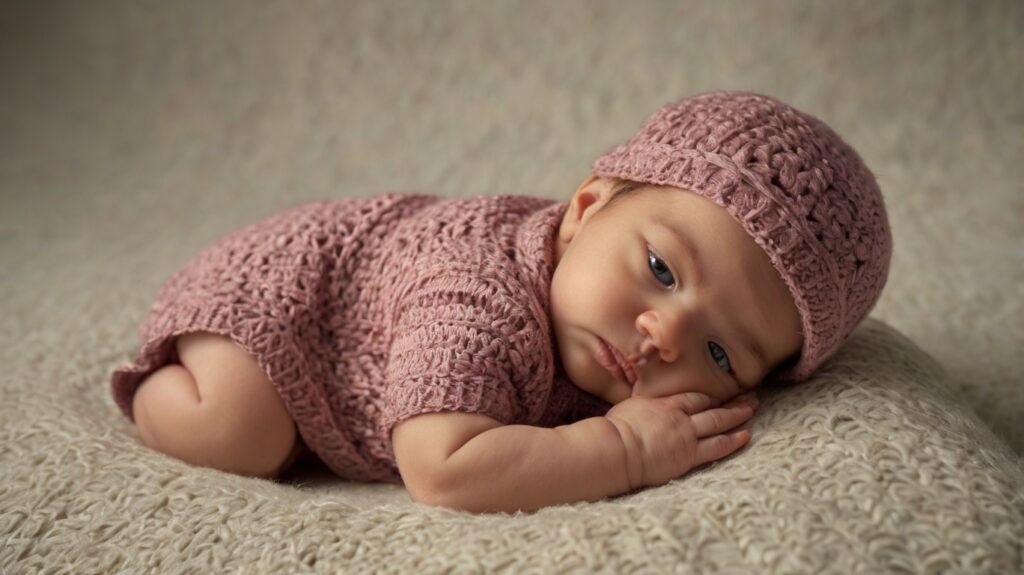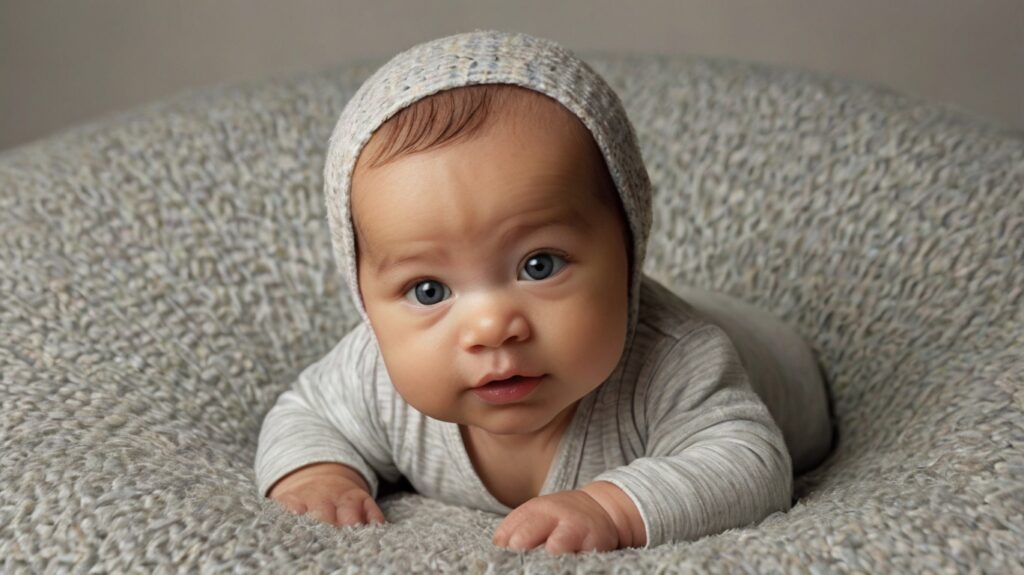
At 3 months, your baby is becoming more alert, interactive, and physically capable. This stage often brings a noticeable shift—your newborn is transitioning into a more social, curious little person. While every baby develops at their own pace, there are common milestones and changes you may see this month.
Physical Development
- Better head control – Your baby’s neck muscles are stronger now, so they can hold their head steady for short periods when sitting supported or during tummy time.
- Increased muscle strength – You might notice stronger kicks, arm movements, and even attempts to push up on their forearms.
- Improved hand coordination – Babies may start opening their hands more, swatting at toys, and even grasping them briefly.

Cognitive and Sensory Development
- Recognizing familiar faces and voices – Your baby is becoming more aware of the people around them, especially parents and primary caregivers.
- Better vision – They can now track moving objects more smoothly and may enjoy watching mobiles or colorful toys.
- Increased curiosity – Your little one might stare at their hands or follow your movements around the room.
Social and Emotional Growth
- Smiling with purpose – Social smiles become more frequent, especially when interacting with you.
- Early laughter – Some babies begin to giggle at this age, especially during playful moments.
- Expressing needs with different cries – You may start to notice distinct cries for hunger, tiredness, or discomfort.

Feeding at 3 Months
- Breastfed babies – Typically nurse every 3–4 hours.
- Formula-fed babies – Usually take 4–6 ounces every 3–4 hours.
- Babies at this age don’t need solid foods yet—exclusive breast milk or formula is recommended until about 6 months.
Sleep Patterns
- Longer stretches at night – Some babies may sleep for 5–6 hours at a time, though many still wake at least once or twice.
- Total sleep – Around 14–17 hours in a 24-hour period, including naps.
- Bedtime routine – Establishing a consistent wind-down routine now can help encourage better sleep habits later.

Play and Stimulation
- Tummy time – Aim for a few short sessions throughout the day to build muscle strength.
- Talking and singing – Babies love hearing your voice, which supports language development.
- Soft toys and rattles – Offer safe, lightweight toys to encourage grasping and sensory exploration.
When to Check with a Doctor
Every baby develops differently, but talk to your pediatrician if your 3-month-old:
- Doesn’t respond to loud sounds or familiar voices.
- Can’t hold their head up even briefly when supported.
- Shows little interest in interacting or smiling.
Tip: This is a sweet stage—your baby is still cuddly but becoming more interactive. Take time to enjoy these moments and capture milestones, as the months ahead will bring even more exciting changes.